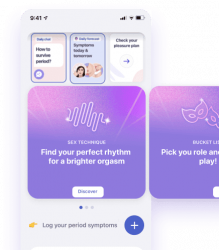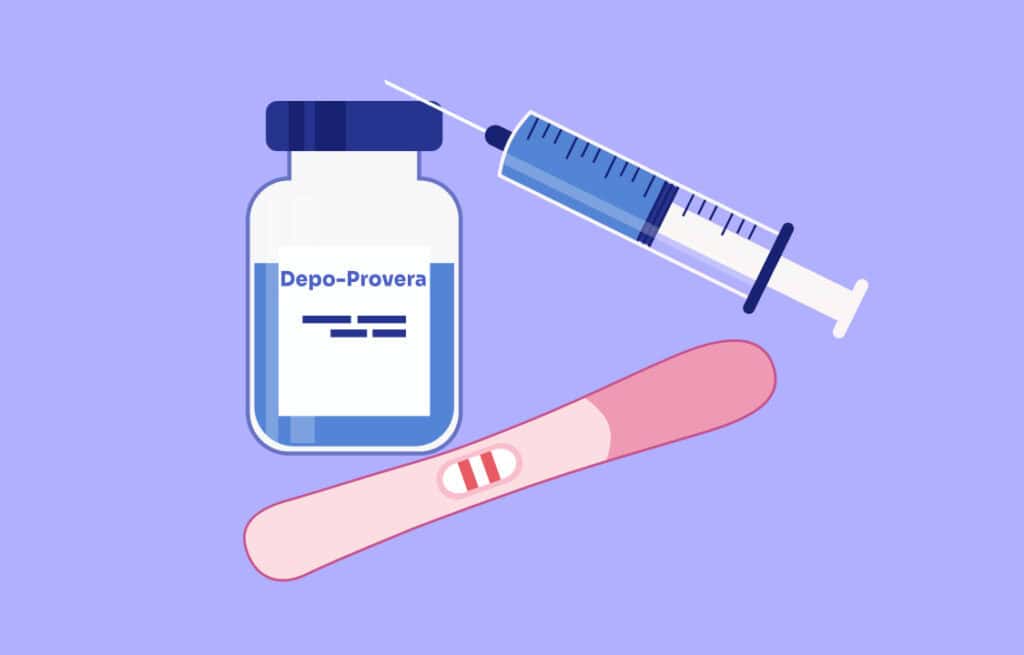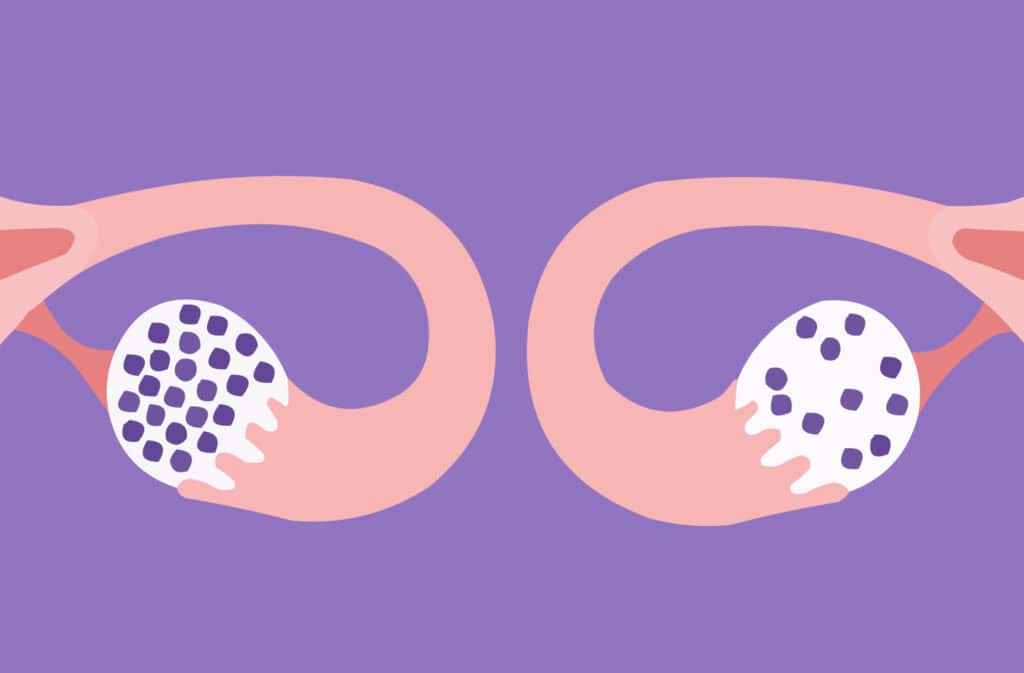Femia > Health Library > Being a mom > Recovering from birth > When is it safe to orgasm after giving birth
When is it safe to orgasm after giving birth

- Updated Mar 2, 2025
- Published
CRAFTED BY HUMAN
Crafted by human At Femia, we provide accurate and up-to-date information at every stage of your journey, from trying to conceive, pregnancy and postnatal support. All content is created by a real person based on in-depth research and own professional experience. Femia ensures that you will receive expert advice, strict accuracy and a personalized approach from our authors/medical experts. Learn more about our editorial policy.
FACT CHECKED
Fact checked At Femia Health, we maintain the highest standards of editorial excellence in delivering content focused on helping you conceive, guiding you through pregnancy, and supporting you postpartum. Explore our content review principles to learn how we ensure the accuracy and quality of our health and lifestyle tips for every stage of your journey.
Having orgasm or sex after giving birth depends on your body’s healing and when you can comfortably do so without experiencing excessive pain.
Healthcare providers typically recommend waiting for two to six weeks after delivery to resume sexual activity, as the initial days after birth are risky for vaginal and uterine infections.
But, as every woman’s recovery is unique, the timing can vary, and it is best to consult your healthcare provider for personalized advice.
So, when is it safe to orgasm after giving birth? The answer is whenever your body feels comfortable and ready!
It’s totally okay to feel low, experience discomfort during sex, or not have the same sexual desire or energy as before you gave birth. This is because your body is healing from the changes and stressors it encountered—and that’s normal. A few weeks or a couple of months from now, your energy, motivation, and desire for sex will return as your body recovers.
Mood changes and hormonal shifts are all part of the postpartum journey, so remember, you are exactly where you need to be. Be gentle with yourself, and celebrate your remarkable achievement of bringing a new life to the world!

How soon after birth can you have sex?
Medical recommendations
According to medical guidelines, it’s generally recommended to wait about 4 to 6 weeks after giving birth before having sex. This waiting period allows the body to heal and recover from childbirth, as the uterus, cervix, and vaginal tissues need time to return to their pre-pregnancy state. Additionally, waiting can help reduce the risk of infection, especially for those who had tears or required stitches during delivery.
Listening to your body and personal feelings
While medical recommendations offer a timeline, every individual’s readiness for sex after birth is unique. Physical recovery, emotional readiness, and mental health play a big role. It’s common to experience changes in libido due to factors such as hormonal shifts, fatigue from caring for a newborn, or personal comfort with the postpartum body. It’s important to communicate openly with your partner and move forward only when you feel both physically and emotionally ready.
Tips for a comfortable postpartum sexual experience:
Start slowly
Begin with gentle intimacy to ease back into sexual activity.Use lubrication
Hormonal changes can cause vaginal dryness, so consider using a lubricant.Choose comfortable positions
Certain positions may feel better as you heal; experiment to find what’s comfortable.Communicate openly with your partner
Talk about any concerns, discomfort, or readiness to ensure mutual understanding.Consult your healthcare provider
If you have any concerns or experience pain, consult your healthcare provider for guidance.

Physical readiness after vaginal delivery
After a vaginal delivery, physical readiness for sex varies widely among individuals. Typically, doctors recommend waiting 4 to 6 weeks before resuming sex after birth to allow any tears or stitches to heal and reduce the risk of infection. During this time, the body is also recovering from changes in the uterus and cervix. Listening to your body and consulting your healthcare provider about postpartum sex can help you determine the best time to start, as everyone’s healing process is unique.
👉Find out more: Pelvic floor massage 101: How to relieve pain and improve function
Physical readiness after C-section delivery
For those who have undergone a C-section, the timeline for sex after birth may still align with the typical 4 to 6 weeks, but recovery can differ due to the nature of the surgery. The incision site needs time to heal, and abdominal muscles may feel tender or weak, impacting physical comfort during postpartum sex. While the risk of vaginal tearing is absent, it’s still important to wait until any pain subsides and your doctor confirms that you’re ready. Listening to your body and prioritizing healing will help ensure a more comfortable experience when you feel prepared to engage in intimacy again.
When is it safe to orgasm after giving birth?
Generally, it’s safe to experience an orgasm within a few weeks after giving birth, as long as you feel comfortable and your body is healing well. Unlike penetrative postpartum sex, which may require a longer waiting period, orgasms typically don’t pose any risk to physical recovery. However, it’s important to be mindful of any discomfort, as the uterine contractions triggered by orgasm may feel different or more intense due to the body’s postpartum adjustments. If you’re ready and curious about pleasure after birth, gentle stimulation and taking things at your own pace can help ease back into intimacy.
👉Find out more: Pelvic floor massage 101: How to relieve pain and improve function
Sex after birth: What to expect
After giving birth, your body goes through physical and emotional changes that can affect your sexual experience and pleasure. These changes are a normal part of the postpartum journey, and it’s okay to take your time and let your body recover.
Remember, you have your entire life ahead to enjoy sex, but this is the time to give your body the relaxation it deserves.
In this section, we will discuss what to expect while having sex after birth or breasfeeding sex and how to minimize discomfort and enhance your sexual pleasure during or after postpartum.
Symptoms that affect postpartum sex
The following are the common physical and emotional symptoms that may affect sex or make it unpleasant after birth:
- Vaginal dryness, soreness, discharge, or pain;
- Perineal discomfort;
- Painful sex after birth;
- Discomfort around c-section incision;
- Continued postpartum bleeding;
- Sore and swollen breasts,;
- Low sex drive;
- Hormonal shifts that can cause mood swings;
- Backaches;
- Breast soreness or discomfort;
- Pain and numbness at the incision or stitches site.
👉Find out more: Reverse Kegels: What they are, how to do them, and their benefits
How to minimize sexual discomfort after birth
Here is how you can naturally minimize discomfort or pain while having sex after giving birth:
1. Take things slowly
To minimize sexual discomfort after giving birth, the best approach is to take things slowly. If you don’t feel ready for intercourse, there is no need to rush or be hard on yourself, as this is totally normal and nothing to worry about.
Take a deep breath, relax, and remind yourself that this phase is temporary. You have just embraced a lifelong accomplishment you should be proud of.
2. Start with other intimate acts
You can start with cuddles, kisses, hugs, and romantic talks with your partner.
Plan a movie night or a candlelight dinner, and pamper each other with intimate things.

3. Open communication
Openly communicate with your partner how you feel and what your body desires. Your comfort with certain touches, acts, and positions during sex might have changed, and that’s normal. This is a great time to explore and experiment with what feels comfortable and brings you pleasure.
4. Slow penetration and using lubrication
As you plan to proceed to intercourse, you can use lubricants and opt for slow penetration to minimize pain and let your body adjust to it or desire sex naturally.
Tips for a positive postpartum sexual experience
Prioritize open communication with your partner and start slowly, focusing on what feels comfortable and enjoyable. Using lubrication and exploring different forms of intimacy beyond postpartum sex can help ease the transition back into physical connection after birth.
Setting realistic expectations
Returning to intimacy after childbirth can be a gradual process, and it’s important to set realistic expectations for both yourself and your partner. Hormonal changes, physical healing, and the demands of caring for a newborn may impact your desire and energy levels, making postpartum sex feel different from before. Accepting that intimacy may need to adapt during this period can help reduce pressure and create space for a more relaxed and fulfilling experience. Remember, every postpartum journey is unique, so give yourself time and patience as you reconnect with your body and partner.
Redefining intimacy beyond intercourse
Postpartum is an ideal time to explore forms of intimacy that go beyond intercourse, helping both partners feel close and connected without the immediate pressure of postpartum sex. Cuddling, gentle massages, or simply spending quality time together can foster emotional closeness and rebuild physical connection. Redefining intimacy in this way allows both partners to feel valued and appreciated, creating a foundation of trust and affection that supports the transition back to sexual activity when both are ready. This approach can help maintain a strong bond during a time of change and healing.
Supporting emotional well-being
The postpartum period brings many emotional shifts, and prioritizing emotional well-being is essential for a positive postpartum experience, including when returning to intimacy. Feelings of anxiety, self-consciousness, or fatigue are common and can impact readiness for physical connection. Engaging in self-care practices, reaching out for support, and communicating openly with your partner about your needs can help create a compassionate environment. Supporting your emotional health allows you to approach postpartum sex with confidence and comfort when the time feels right.
Fertility and birth control after childbirth
It’s a common misconception that fertility takes months to return after childbirth, but ovulation can occur as early as three weeks postpartum, even before your first period. For those not ready for another pregnancy, discussing birth control options with a healthcare provider is important, as some methods are more suited to postpartum needs, especially if breastfeeding. Barrier methods, hormonal options compatible with lactation, or non-hormonal choices like the copper IUD are often recommended. Planning for birth control after childbirth can help you feel confident and in control of your reproductive health during this new phase.
Choosing the right birth control method
Selecting a suitable birth control method after childbirth and while breastfeeding depends on individual health, lifestyle, and whether you’re breastfeeding. Many options are available, from barrier methods like condoms to hormonal methods specifically designed to be safe during lactation, such as the progestin-only pill. Non-hormonal methods like the copper IUD can also provide long-term contraception without affecting milk supply.
Understanding your options and consulting with a healthcare provider can help you make an informed choice that aligns with your family planning goals and postpartum needs.
Sex 3 weeks postpartum: Is it too soon?
Some healthcare providers recommend waiting two to six weeks for sex after giving birth. This is because during this period, you are still bleeding, and penetrative sex may increase the risk of uterine infection or bleeding. Having sex three weeks postpartum mainly depends on your body’s healing and the recommendations of your doctor.
If you are unsure about your body’s healing and whether you should have sex or not, it is ideal to ask your healthcare provider if your body is ready to resume sexual activity. They will guide you based on your individual condition.
If you feel ready for sex three weeks after your delivery, it’s important to be gentle and attentive to your body’s signals, and stop if you feel pain during sex. Moreover, it is recommended to use protection to prevent vaginal or uterine infections.
Questions from the Femia community:
Does sex feel the same after birth?
After childbirth, many people notice changes in how sex after birth feels, which can vary depending on factors like delivery type, physical recovery, and hormonal shifts. Vaginal delivery may result in sensations of looseness or increased sensitivity due to changes in the pelvic floor, while C-section recovery can bring different challenges, such as abdominal discomfort. These changes are often temporary and can improve with time, pelvic floor exercises, and open communication with your partner.
When does sex stop hurting postpartum?
Discomfort during postpartum sex is common initially, especially for those recovering from tears, stitches, or C-sections. Pain should gradually decrease within a few months, though some may find relief sooner or later depending on individual healing and comfort levels. Using lubrication, starting slowly, and consulting a healthcare provider if pain persists can help ease the transition.
Why is my sex drive lower postpartum?
A lower sex drive after childbirth is natural, often influenced by hormonal changes, exhaustion from caring for a newborn, and emotional shifts. High levels of prolactin, especially if breastfeeding, can also suppress libido temporarily. Allowing yourself time to adjust to these changes, focusing on self-care, and communicating openly with your partner can help support a gradual return to intimacy.
Can I have oral sex or masturbate safely?
Yes, engaging in oral sex or masturbation is generally safe as soon as you feel comfortable and ready, typically after initial healing (around 2-4 weeks). However, it's important to avoid introducing bacteria into the vaginal area, especially if recovering from tears or stitches, to prevent infection. Listening to your body and starting with gentle stimulation can help you reconnect with pleasure after birth.
How do I talk to my partner about intimacy?
Discussing intimacy with your partner after birth is essential to maintain closeness and address any concerns. Start with honest, gentle conversations about how you’re feeling physically and emotionally, and share any anxieties or changes you’re experiencing regarding sex after birth. Establishing a supportive dialogue allows both partners to adjust expectations and reconnect, creating a foundation of trust and patience as you explore postpartum intimacy together.
The bottom line
Bringing a new life into the world isn’t easy, and you have done it remarkably! So, now it’s time to let your body recover, and enjoy the precious moments with your newborn. Sex and orgasm can wait, so try not to have sex until at least two to three weeks after giving birth, and give your body the rest and relaxation it deserves.
If you have sex that involves penetration immediately after giving birth, it may increase the risk of infections and cause pain and discomfort. It is generally recommended to wait two to six weeks postpartum for sex, but the timing can vary depending on your health, as every woman’s recovery is unique.
After three weeks postpartum, you can consult your healthcare provider to ask whether it’s safe to resume sexual activity or not. Moreover, remember to use lubrication, be gentle with yourself, and take things slowly. You got this!
References
- Gutzeit, Ola, et al. “Postpartum Female Sexual Function: Risk Factors for Postpartum Sexual Dysfunction.” Sexual Medicine, vol. 8, no. 1, Dec. 2019, pp. 8–13. https://doi.org/10.1016/j.esxm.2019.10.005.
- “Sex After Pregnancy: Set Your Own Timeline.” Mayo Clinic, 26 Mar. 2024, www.mayoclinic.org/healthy-lifestyle/labor-and-delivery/in-depth/sex-after-pregnancy/art-20045669.
- Clinic, Cleveland. “What You Should Know About Postpartum Sex.” Cleveland Clinic, 9 July 2024, https://health.clevelandclinic.org/sex-after-birth.
- Neupert, Benjamin. “Sex After Birth.” American Pregnancy Association, 13 June 2022, https://americanpregnancy.org/healthy-pregnancy/first-year-of-life/sex-after-birth/.
- Rupp, Heather A., et al. “Lower Sexual Interest in Postpartum Women: Relationship to Amygdala Activation and Intranasal Oxytocin.” Hormones and Behavior, vol. 63, no. 1, Jan. 2013, pp. 114–21. https://doi.org/10.1016/j.yhbeh.2012.10.007.

Learn about the signs of pregnancy after Depo-Provera, how long it takes to get pregnant, and tips for conceiving after stopping the birth control shot.

How many eggs do women have and how does their amount change with age? Here is a guide to help you get a better understanding of your fertility.

Learn about egg freezing technique to persevere fertility in all details, including reasons for egg freezing, timing and factors affecting success rates.

